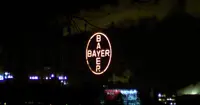SC advises negotiated settlement of Ayodhya issue
21 Mar 2017
The Supreme Court has advised warring parties in the Ayodhya Ram Mandir issue to settle the sensitive and sentimental issues through negotiations rather than through a court of law. Chief Justice J S Kehar, however, said the SC would intervene only if discussions between the Hindu and Muslim groups fail.

The Supreme Court today said fresh attempts must be made by all parties concerned to find a solution to the Ayodhya temple dispute which is a ''sensitive'' and ''sentimental matter''.
A three-judge bench comprising Chief Justice JS Khehar and Justicess DY Chandrachud and SK Kaul said that such religious issues can be solved through negotiations and offered to mediate to arrive at an amicable settlement.
''These are issues of religion and sentiments. These are issues where all the parties can sit together and arrive at a consensual decision to end the dispute. All of you may sit together and hold a cordial meeting,'' the bench said.
The observations came after Bharatiya Janata Party leader Subramanian Swamy mentioned the matter and appealed to the court for a hearing on building the Ram Mandir in Ayodhya.
In his petition, Swamy had claimed that under the practices prevalent in Islamic countries, a mosque could be shifted to any other place for public purposes like constructing road, whereas a temple once constructed cannot be touched.
He had also sought early disposal of several petitions challenging the Allahabad High Court verdict of three-way division of the disputed Ram Janmabhoomi-Babri Masjid site in Ayodhya on 30 September 2010 (See: Verdict in favour of Ram Janambhoomi: Muslims may get one third share). "It is an issue of sentiment and religion. First sit together and sort out. Both sides employ moderators and hold meetings," said Chief Justice JS Khehar, while hearing Subramanian Swamy's appeal. "We can come into the picture if you can't solve the issue," he added.
The court also told Swamy to mention the matter on or before 31 March.
Swamy, however, told the court that it is difficult to hold talks with both the communities and that judicial intervention would become necessary.
The Babri Masjid Action Committee on Tuesday, however, ruled out the possibility of an out-of-court settlement and said it was open only to mediation by the Chief Justice of India.
"We have faith if the CJI himself mediates or nominates a team of Supreme Court judges or court itself hears the matter. But we are not willing to accept an out-of-court settlement," said Babri Masjid Action Committee convener Zafaryab Jilani.
"An amicable solution is impossible. This has to be dealt in the court itself. It has been long pending in the court. If the court passes any order to that effect (amicable solution), we will think about future course of action," he added.
The court's decision comes at a time when Yogi Adityanath, who is seen as a right wing Hindu extremist, has taken over as UP chief minister.


.webp)

.webp)


.webp)























